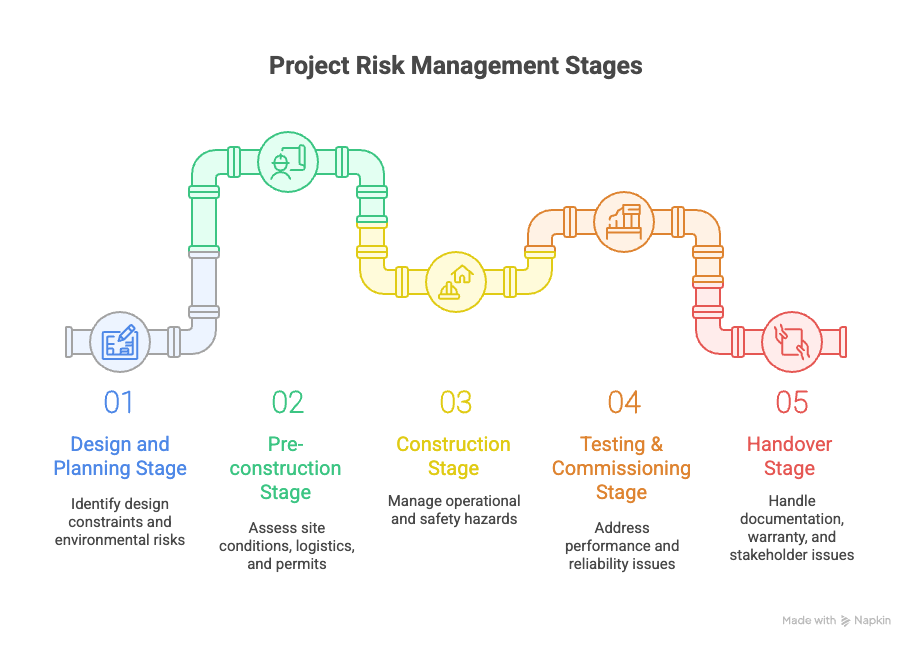Project Risk Management (PRM)
In any complex project, uncertainty is a given. Project Risk Management (PRM) is the essential, structured process of transforming this uncertainty into a manageable strategy, safeguarding your objectives and maximizing your chances of success.
It is a proactive, continuous discipline that moves beyond simple hazard spotting. We strategically identify, assess, and manage a wide spectrum of threats—and opportunities—to ensure your project is delivered on time, within budget, and to the highest standards of safety and quality.
At Capital Kirana, we partner with your team to embed PRM into the entire project lifecycle, from conceptual design to final commissioning
Our PRM Process: A Lifecycle Approach
We provide a systematic, multi-stage process to ensure no risk is overlooked and that all responses are effective.
Risk Management Planning
Risk Identification
Risk Analysis (Qualitative & Quantitative)
Risk Response Planning
Risk Monitoring & Control

- PRM is a structured process for identifying, analysing and managing project risks to meet project objectives.
- It includes systematic planning, risk identification, assessment, response development and monitoring.
- Aims to minimize negative events (losses, delays, safety incidents and public complaints) and maximise opportunities (completion on time).
- Follows ISO 31000: 2018 principles of risk management
Risks Analysis Implementation Phases

- Design and Planning Stage – Identify design constraints, environmental risks.
- Pre-construction Stage – Site conditions, logistics, permits.
- Construction Stage – Operational and safety hazards.
- Testing & Commissioning Stage – Performance and reliability issues.
- Handover Stage – Documentation, warranty, and stakeholder issues.
Our Project Risk Management service provides you with the clarity, control, and confidence needed for project success. Key deliverables include:
A comprehensive Project Risk Management Plan.
A dynamic Risk Register detailing all identified risks, their analysis, and response strategies.
Clear, concise risk-based reports to enhance decision-making for project leadership.
Increased stakeholder confidence and a robust defense against potential disruptions.
A proactive approach to not only protect your assets but also to achieve long-term stability and growth .
